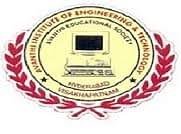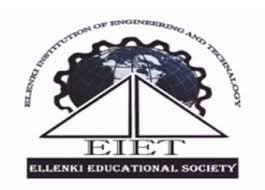Diverse paths power electronics engineer, renewable energy specialist, power systems engineer. Industries value your skills for advancing energy solutions. Shape the future of efficient power conversion and sustainable energy technologies.
Career & Job Opportunities after M.Tech in Power Electronics
M.Tech in Power Electronics is a dynamic and specialized engineering program designed to equip students with in-depth knowledge and expertise in the field of electrical power conversion and control. This advanced degree program focuses on the design, development, and optimization of power electronic devices and systems that play a pivotal role in various industries, ranging from renewable energy and electric vehicles to industrial automation and smart grids.
As the world continues its shift towards sustainable and energy-efficient solutions, the demand for professionals with specialized skills in Power Electronics has surged. This comprehensive guide explores the eligibility criteria, fee structure, future scope, benefits, and career opportunities associated with pursuing an M.Tech in Power Electronics. Whether you're a prospective student considering this program or an industry professional seeking to enhance your expertise, this guide will provide valuable insights into the exciting world of Power Electronics and the promising career paths it offers.
Power Electronics Engineer: As a power electronics engineer, you will design and develop power electronic converters, inverters, and motor drives. These components are essential for various applications, from renewable energy systems to industrial automation. Your role will involve optimizing power electronic systems for efficiency and performance.
Renewable Energy Specialist: The renewable energy sector offers exciting opportunities for M.Tech graduates. You can work on the design and integration of power electronics in solar inverters, wind turbines, and energy storage systems. Your expertise will contribute to the efficient harnessing of clean energy sources.
Electric Vehicle (EV) Engineer: With the electrification of the automotive industry, EV engineers are in high demand. You can be involved in designing the power electronics systems that control EV motors, battery management, and fast-charging infrastructure. Your work will be instrumental in advancing sustainable transportation.
Research and Development (R&D) Engineer: R&D engineers focus on innovation and technology advancement. You can work in R&D departments of companies or research institutions, exploring new power electronic devices, control algorithms, and energy-efficient solutions. Your contributions can lead to groundbreaking discoveries in the field.
Control Systems Engineer: Control systems engineers specialize in designing control algorithms for power electronic systems. This role is critical in ensuring stable and efficient operation. You may work on applications like voltage regulation, motor control, or grid management.
Smart Grid Consultant: Smart grids are transforming the energy distribution landscape. Smart grid consultants help utilities and companies implement intelligent grid solutions. Your expertise in power electronics can support the development of grid automation, demand response, and energy management systems.
Power Quality Analyst: Power quality analysts monitor and analyze electrical systems to ensure a consistent and reliable power supply. You can identify and mitigate issues related to harmonics, voltage sags, and power factor correction, enhancing the quality of electricity supply.
Industrial Automation Engineer: Industrial automation relies on power electronics for motor control, robotics, and process automation. You can work in manufacturing industries, optimizing production processes and reducing energy consumption.
Project Manager: Project managers oversee engineering projects related to power electronics. Your responsibilities may include project planning, budgeting, team management, and ensuring the timely completion of projects. This role is essential for the successful execution of complex initiatives.
Academician/Professor: If you have a passion for teaching and research, you can pursue a career in academia. As a professor or lecturer, you will educate the next generation of engineers while conducting research in your area of expertise.
Strategies for Enhancing Employability:
To maximize your employability after completing an M.Tech in Power Electronics, consider the following strategies:
Internships and Research Projects: Seek internships or research projects during your M.Tech program. Practical experience is highly valued by employers and can provide valuable industry insights.
Networking: Attend conferences, seminars, and workshops in the field of power electronics to build a professional network. Networking can lead to job opportunities and collaborations.
Certifications: Consider obtaining relevant certifications in power electronics, such as Certified Power Electronics Professional (CPEP). Certifications demonstrate your commitment to professional development.
Soft Skills Development: Develop strong communication, teamwork, and problem-solving skills. These skills are essential in engineering roles and project management.
Continuing Education: Stay updated on the latest advancements in power electronics through continuing education, online courses, and workshops. Continuous learning is crucial in a rapidly evolving field.
Join Professional Associations: Become a member of professional associations like the IEEE Power Electronics Society to access resources, publications, and networking opportunities.
Build a Portfolio: Showcase your projects, research, and achievements through an online portfolio or personal website. A well-documented portfolio can impress potential employers.
Customize Your Resume and Cover Letter: Tailor your resume and cover letter to highlight your relevant skills and experiences for each job application. Customize your application materials for each prospective employer.
Prepare for Interviews: Practice interviewing for technical roles. Be ready to discuss your academic and practical experiences, problem-solving abilities, and how you can contribute to the company's goals.
Seek Guidance: Utilize career counselling services at your institution or seek advice from industry professionals. They can provide valuable insights and guidance for your job search.
An M.Tech in Power Electronics offers a wide range of career opportunities in an ever-expanding field that is vital to the advancement of technology and sustainability. By following these strategies and leveraging your expertise, you can embark on a fulfilling career path that allows you to contribute to the development of efficient power systems and clean energy solutions. Your M.Tech degree is the key to a rewarding journey in the world of Power Electronics, shaping the future of energy technology and innovation.
 2 Years
2 Years
 Post Graduate
Post Graduate
 Engineering
Engineering
 Full Time
Full Time





















 back
back